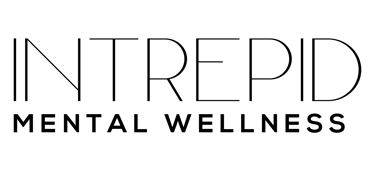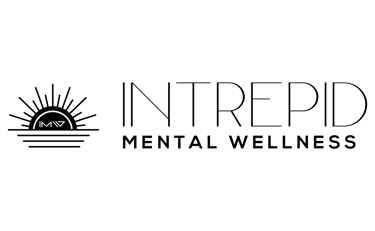Intrepid Mental Wellness: Trusted Holistic Anxiety Treatment
Psychiatric Nurse Practitioners Based in Denver and Available Online Throughout Colorado and Arizona
Frequently Asked Questions: Anxiety
What Are Symptoms of Anxiety?
What are the common symptoms of generalized anxiety?
Generalized anxiety often includes excessive worrying, restlessness, and difficulty concentrating. People may also experience irritability and sleep disturbances.
How can you recognize a panic attack?
A panic attack typically involves an abrupt surge of intense fear. Symptoms include rapid heartbeat, sweating, trembling, shortness of breath, chest pain, and a feeling of losing control.
Are physical symptoms a part of anxiety?
Absolutely. Physical symptoms like headaches, muscle tension, dizziness, and gastrointestinal issues are common in anxiety sufferers.
Is feeling restless a sign of anxiety?
Yes, restlessness is a hallmark symptom. It’s that persistent feeling of being on edge or unable to relax.
Can anxiety cause difficulty in sleeping?
Anxiety often leads to insomnia, making it hard to fall or stay asleep due to racing thoughts and excessive worry.
Is it normal to experience irritability with anxiety?
Irritability is common. When anxiety levels are high, even minor stressors can trigger a strong emotional reaction.
How does anxiety impact concentration?
Anxiety can severely affect your ability to concentrate. The constant worry and overthinking can make it difficult to focus on tasks.
Can anxiety cause physical pain?
Yes, chronic anxiety can manifest in physical pain, such as headaches, muscle aches, and chest pain due to prolonged tension and stress.
What are the signs of social anxiety?
Social anxiety symptoms include intense fear of social situations, avoiding interactions, and physical symptoms like blushing, sweating, and nausea.
Is dizziness a symptom of anxiety?
Dizziness can indeed be a symptom, often caused by hyperventilation, stress, or a combination of both during anxious periods.
What Are the Possible Causes of Anxiety?
What is the role of genetics in anxiety?
Genetics can play a significant role in anxiety. If you have family members with anxiety disorders, you're more likely to experience anxiety yourself due to inherited traits.
How does stress contribute to anxiety?
Chronic stress triggers your body's fight-or-flight response, releasing stress hormones like cortisol. Over time, this constant state of alertness can lead to anxiety disorders.
Can gut microbiome imbalances cause anxiety?
Absolutely. An imbalanced gut microbiome can affect the production of serotonin, a key neurotransmitter that regulates mood and feelings of calmness. Since most serotonin is made in the gut, any imbalance can directly impact anxiety levels.
Can micronutrient imbalances cause anxiety?
Yes, deficiencies in essential micronutrients like magnesium, zinc, and B vitamins can impair brain function and neurotransmitter production, leading to increased anxiety levels.
How does a Western diet contribute to anxiety?
A Western diet high in processed foods, sugars, and unhealthy fats can lead to inflammation and hormonal imbalances, which can exacerbate anxiety symptoms.
What impact does alcohol have on anxiety?
While alcohol might provide temporary relief, it can ultimately worsen anxiety. It disrupts sleep, impairs brain function, and can increase stress hormones, leading to more anxiety in the long run.
Does caffeine consumption affect anxiety?
Caffeine is a stimulant that can increase heart rate and elevate stress hormones, leading to heightened feelings of anxiety, especially in sensitive individuals.
Can health issues like hyperthyroidism cause anxiety?
Absolutely. Hyperthyroidism increases metabolism and can mimic anxiety symptoms by causing rapid heartbeat, restlessness, and nervousness, often leading to increased anxiety.
How do hormonal changes affect anxiety?
Hormonal fluctuations, such as those during pregnancy, menstruation, or menopause, can influence brain chemistry and trigger anxiety. Hormones like estrogen and progesterone directly affect mood regulation.




What Medications are Commonly Prescribed for Anxiety?
Selective serotonin reuptake inhibitors (SSRIs) like Prozac and Zoloft and serotonin-norepinephrine reuptake inhibitors (SNRIs) like Effexor and Cymbalta are often prescribed. Benzodiazepines such as Klonopin and Ativan may be used cautiously for short-term relief.
How do SSRIs and SNRIs work to treat anxiety?
SSRIs increase serotonin levels, and SNRIs increase serotonin and norepinephrine in the gut and brain, which can help improve mood and reduce anxiety. They usually take a few weeks to show effects.
Are mood stabilizers like Abilify or Lamictal effective for anxiety?
Yes, medications like Abilify or Lamictal are sometimes prescribed, especially if anxiety coexists with other conditions like bipolar disorder or depression. They help stabilize mood swings and can reduce anxiety symptoms.
What should I do if my medication isn’t working?
Talk to your psychiatric nurse practitioner. They may adjust your dosage or switch you to a different medication. Never stop taking medication without consulting your healthcare provider.
Are there any side effects of anxiety medications?
Yes, side effects can include nausea, fatigue, and sexual dysfunction, depending on the medication. Always discuss potential side effects with your prescriber.
How long do I need to stay on anxiety medication?
It varies. Some people may need medication for a few months, while others might require it for several years. Your psychiatric nurse practitioner will help determine the best plan for you.
Can anxiety be cured with treatment?
While anxiety may not be completely cured, treatments can significantly reduce symptoms and improve quality of life. Consistent treatment and support are essential.
Is it safe to use anxiety medication with other prescriptions?
Always consult your health provider. Some medications can interact, causing harmful effects. Be transparent about all the medications and supplements you’re taking.
What’s the difference between short-term and long-term anxiety treatments?
Short-term treatments like benzodiazepines provide immediate relief but aren’t suitable for long-term use due to dependency risks. Long-term treatments like SSRIs or therapy aim for sustained improvement.
Are There Natural Treatments for Anxiety?
Can addressing gut health help with anxiety?
Gut health is crucial! The gut-brain axis means your digestive system and brain are closely linked. An imbalanced gut can lead to increased anxiety. Probiotics, fermented foods, and a fiber-rich diet can support a healthy gut and potentially reduce anxiety symptoms. Working with your provider to identify specific gut supplements can also be helpful.
What nutrients are important for reducing anxiety?
Key nutrients like magnesium, omega-3 fatty acids, B vitamins, and vitamin D are crucial in managing anxiety. Ensuring you get these through diet or supplements can make a significant difference.
How does exercise help with anxiety?
Exercise increases endorphins and serotonin levels, which are naturally calming and mood-lifters. Regular physical activity can reduce stress hormones and improve well-being.
Is eating whole foods beneficial for anxiety?
Whole foods like fruits, vegetables, whole grains, and lean proteins provide essential nutrients that regulate mood and energy levels. They also help maintain stable blood sugar levels, reducing possible anxiety spikes.
Can addressing past trauma help with anxiety?
Yes, therapies like Eye Movement Desensitization and Reprocessing (EMDR) or other forms of trauma-focused therapy can be incredibly effective in addressing the root causes of anxiety. Intrepid Mental Wellness does not offer EMDR but can refer you to a trusted trauma-informed therapist.
How effective is Cognitive Behavioral Therapy (CBT) for anxiety?
CBT is highly effective for treating anxiety. It helps you identify and challenge negative thought patterns and behaviors, replacing them with healthier thinking and coping methods.
Why is prioritizing sleep important for managing anxiety?
Lack of sleep can exacerbate anxiety symptoms. Establishing a regular sleep schedule and creating a relaxing bedtime routine can significantly improve your ability to manage anxiety.
Should I eliminate substance use to manage anxiety?
Absolutely. Substances like alcohol, caffeine, and recreational drugs can increase anxiety levels. Reducing or eliminating these can help stabilize your mood.
Can addressing specific health issues help with anxiety?
Conditions like thyroid disorders and hormonal imbalances can contribute to anxiety. Addressing these underlying issues is essential for comprehensive anxiety management.












Find your balance: Unlock our full-spectrum mental health services
Intrepid Mental Wellness tackles mental health by addressing symptoms and root causes. We combine prescribed meds with natural supplements to boost well-being. Our goal is to uncover your core issues and provide a personalized treatment plan just for you.
Dive into fresh mental health blog posts
Hours
Monday 7 AM–4:30 PM
Tuesday 7 AM–4:30 PM
Wednesday 7 AM–4:30 PM
Thursday 7 AM–4:30 PM
Friday 7 AM–12 PM
Saturday, Sunday Closed


Providing compassionate holistic mental health care to Colorado and Arizona.
Phone: Colorado & Arizona 719-505-4404
Copyright © 2018-2025 Intrepid Mental Wellness, PLLC. All rights reserved | Privacy Policy | Terms & Conditions


Content on this website is not considered medical advice. Please consult with a licensed health care provider before making any medical or lifestyle changes.
Holistic mind & body supplements & products
Contact |
Shop |
Fax: 720-899-3575